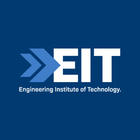Professional Certificate of Competency in Electrical Power System Fundamentals for Non-Electrical Engineers
- Home
- Courses
- Engineering Institute of Technology (EIT)
- Professional Certificate of Competency in Electrical Power System Fundamentals for Non-Electrical Engineers
Professional Certificate of Competency in Electrical Power System Fundamentals for Non-Electrical Engineers
This professional development course is designed for engineers and technicians who need to understand the basics of electrical engineering, the fundamentals of electrical design, and how to integrate electrical engineering knowledge into the other disciplines within a corporation. Course Details This course will begin with a review of basic electrical…
Categories
COURSE DESCRIPTION
This professional development course is designed for engineers and technicians who need to understand the basics of electrical engineering, the fundamentals of electrical design, and how to integrate electrical engineering knowledge into the other disciplines within a corporation.
Course Details
This course will begin with a review of basic electrical circuits and electrical laws. You will learn about the fundamental principles of electrical generation, transmission, and distribution. We will then cover electrical distribution in further detail. Electrical measurements, as applied to single-phase and three-phase systems, will be reviewed.
We will cover earthing (or grounding) with a strong focus on safety issues, before we examine transformers, with an emphasis on power transformers as used in the electrical distribution industry. Power system components in terms of isolators, fuses, and circuit breakers will also be discussed.
The course examines AC and DC motors and reviews electrical lighting and illumination concepts. The impact, especially in the modern world of power electronics, is discussed with a demonstration of the possible unpleasant harmonics that can arise from using this powerful technology.
This then leads to the subject of dealing with power quality. Three major topics covered are electrical power system protection, electrical safety, and customer installations. We will also discuss load forecasting, substation automation, the smart grid, industrial data communications, and carbon trading.
This course is not designed to make you a professional engineer; however, it can help broaden your perspective on different areas of electrical engineering. It will give you valuable skills in relation to electrical engineering, to help you become more productive and safer in your career, and in working with electrical engineers, technicians, and managers.
Time Commitment & Duration
You are expected to spend approximately 5-8 hours per week learning the course content. This includes attending fortnightly webinars that run for about 90 minutes to facilitate class discussion and allow you to ask questions. This professional development program is delivered online and has been designed to fit around full-time work. It will take three months to complete.
REQUIREMENTS
For entry into most EIT degree programs, you need to have completed a minimum level of education similar to successful completion of Australian Year 12 with good grades.
EDUCATIONAL INSTITUTION
The Engineering Institute of Technology (EIT) delivers industry driven programs to equip its students with the skills required in the real industrial world. Its study options are available across Perth and Melbourne; and include classroom sessions, practical lab exercises, assessments, class discussions and self-study. Additionally, students enjoy access to industry experts based around the globe through live and interactive online presentations. All EIT programs provide access to remote laboratories and cutting-edge simulation software. Hands-on laboratory practicals are an essential component of EIT’s programs to ensure students put theory into practice. These hands-on workshops cover the major discipline-specific applied skills required for competency in engineering practice.
Do you want to Apply to:
Professional Certificate of Competency in Electrical Power System Fundamentals for Non-Electrical Engineers
Add Your Heading Text Here
Please, login or Register to Apply!
Do you need extra info about:
Professional Certificate of Competency in Electrical Power System Fundamentals for Non-Electrical Engineers?
The Engineering Institute of Technology (EIT) delivers industry driven programs to equip its students with the skills required in the real industrial world. Its study options are available across Perth and Melbourne; and include classroom sessions, practical lab exercises, assessments, class discussions and self-study. Additionally, students enjoy access to industry experts based around the globe through live and interactive online presentations. All EIT programs provide access to remote laboratories and cutting-edge simulation software. Hands-on laboratory practicals are an essential component of EIT’s programs to ensure students put theory into practice. These hands-on workshops cover the major discipline-specific applied skills required for competency in engineering practice.




